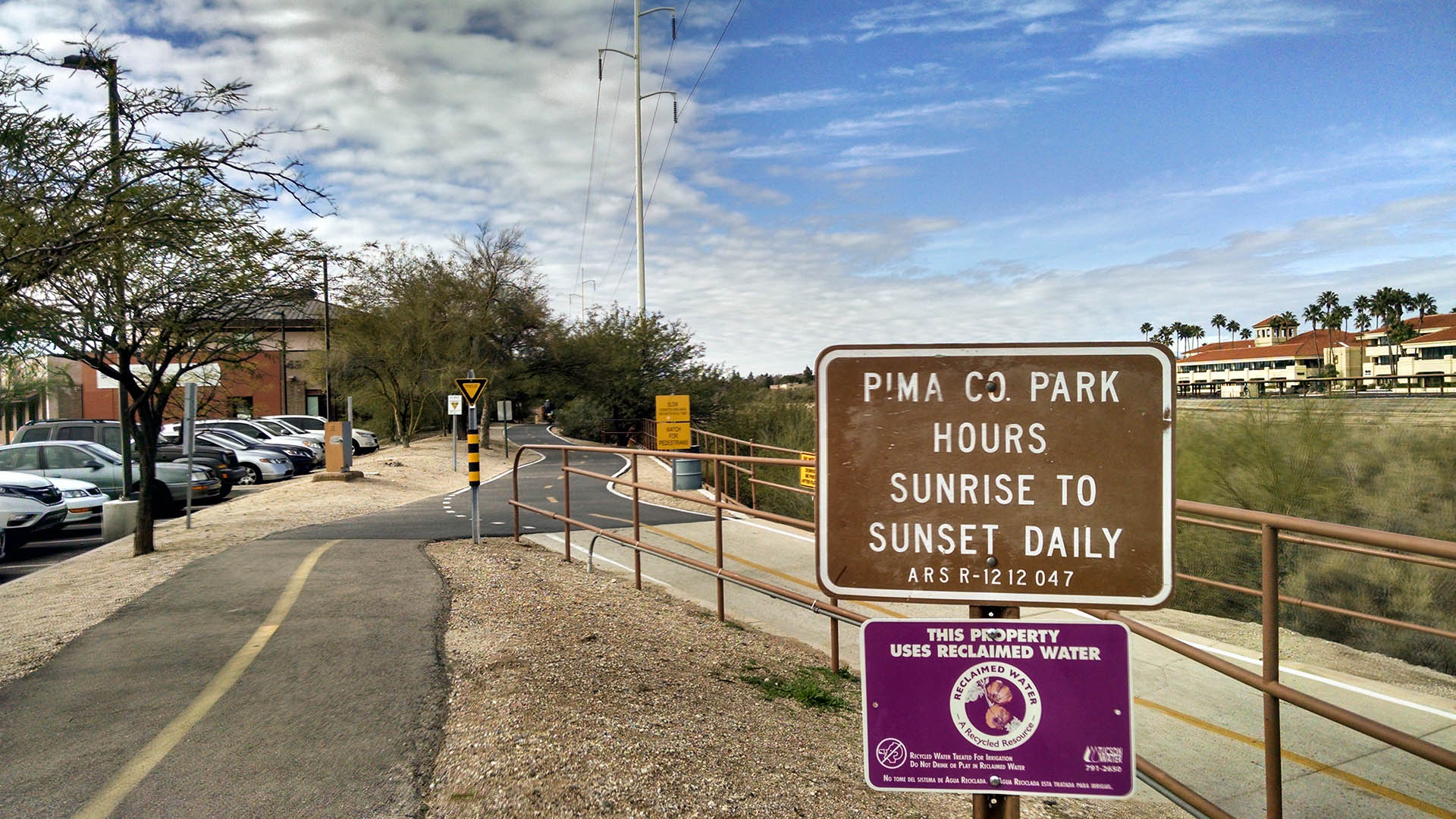 The Loop bike path along the Rillito River at North Campbell Avenue.
The Loop bike path along the Rillito River at North Campbell Avenue.
The Tucson City Council is expected to vote later this on Wednesday whether to pass an ordinance that would ban homeless encampments in washes.
“The Regional Unsheltered Resource Council has suggested a more permanent, year-round approach, including a prohibition against camping in washes, due to the significant dangers associated with this activity,” the memo reads.
City manager Timothy Thomure says the ordinance would be a way to prevent the loss of life and property. Thomure reasons that people sleeping in these washes risk drowning in a flood when it rains. He also says that vegetation fires sometimes have started due to people living in these areas, which also poses risks.
Other considerations include the safety of first responders. According to the city manager, responding to emergencies in these washes poses risks for first responders due to fires, floods, and the time it takes to get someone medical help. However, Thomure emphasized the need to develop “comprehensive strategies and safety protocols to protect those responsible for providing assistance in these challenging environments.”
“Enacting an ordinance prohibiting camping in desert riparian washes and watercourses will help to ensure the safety of individuals and the public and will protect the environment,” Thomure writes.
The encampments also impact the environment, Thomure says. The presence of people along with the construction of temporary structures can cause issues to the “delicate balance of riparian ecosystems” like “the seepage of human waste and sometimes drug debris.”
In his recommendation, Thomure says the ordinance would be subject to the city’s Homeless Encampment Protocol, which prioritizes enforcement based on the level of threat to public health and safety and includes prior notice to the people in the encampment. However, this does not apply to cases where a threat to public safety is imminent.
The ordinance defines terms like wash and camping. Right now, Phoenix currently bans camping in washes and other areas like sidewalks, alleys, city parks, and canals.
If approved by the council, violations of this ordinance would be classified as a misdemeanor, punishable by community service or a max fine of $250, 10 days imprisonment, and/or one-year probation.

By submitting your comments, you hereby give AZPM the right to post your comments and potentially use them in any other form of media operated by this institution.